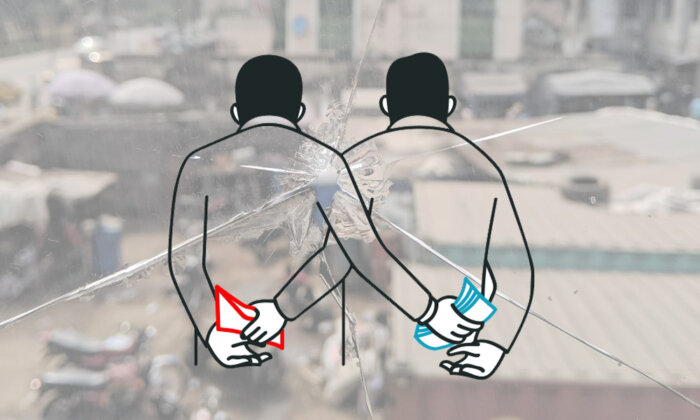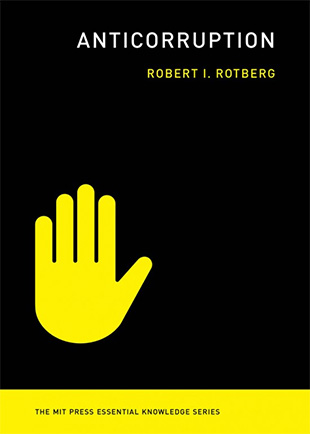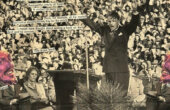The Baleful Consequences of Corruption

“If we put corrupt men in public office and sneeringly acquiesce in their corruptions, then we are wrong ourselves.”— Theodore Roosevelt
From ancient Mesopotamia to our modern-day high-level ethical morass, people have sought a leg up, a shortcut, or an end run to power and influence.
Ancient Indian epics speak explicitly of bribery to keep the devil at bay. Dutch high officeholders in the 18th century sold rewarding public positions and pocketed the proceeds while the buyers (and new officeholders) fleeced the public. So did 18th-century Danes and 19th-century Americans, Britons, and Canadians. In the U.S. today, to quote Robert Weismann, the president of the ethics group Public Citizen, we have seen a “normalization of corruption” and “a stunning degradation of ethical norms” by President Trump and his acolytes.

Because of an underlying propensity to be greedy, and because the human condition seeks advantage, there is no shortage of corruption — and its pernicious consequences — in the contemporary universe. But no political jurisdiction can function on behalf of its citizens and stakeholders if its leaders and middle managers are focused on private gain rather than public enrichment. Instead, bridges collapse, roads crumble, food is tainted, organs are peddled for profit, police self-enrich at roadblocks, marriage and birth certificates become costly, and the very fundamentals of a safe and secure life are compromised.
Indeed, corruption inhibits improved health outcomes and educational opportunities almost everywhere. In Malawi, a minister of education purchased millions of expensive supplies unsuitable for classroom use. He pocketed the kickbacks, and students lost the chance to learn. A more recent case of outrageous kickbacks occurred in Nigeria, where two British-based oil exploration entrepreneurs connived with local partners to receive 15 percent of a $300 million deal, defrauding their own shareholders and the Nigerian government for private benefit (the purchase of luxurious homes on Caribbean islands).
Corrupt interference with the supply of antiretroviral medicines doomed Ukrainian HIV/AIDS patients to perish.
Corruption’s persistence in public and private life even leads to losses of life; deaths from natural disasters could have been avoided if national rules and regulations had not been breached for private gain, as in civil conflicts in Africa and Asia that arise because of regime-inflicted avarice or scrambles for illicit resources. The massive destruction caused in Kathmandu, for example, after the 2016 earthquake that destroyed large parts of the Nepali capital, depended on corruptly acquired permits to evade building regulations.
The chemical explosion that maimed thousands in Tianjin, China, resulted from bribes to elude strict rules. Corrupt interference with the supply of antiretroviral medicines doomed Ukrainian HIV/AIDS patients to perish. Measles and infantile paralysis vaccination campaigns in Asia and Africa are interrupted for corrupt gains. The civil wars in the Central African Republic, the Democratic Republic of Congo, and Mali all stem in part from (excessive) corrupt dealings by successive regimes.
Corruption is also intimately linked to the smuggling of narcotics, arms, migrants, and people otherwise enslaved. It facilitates the clandestine movement of nuclear materials and assists in the proliferation of nuclear weapons. It depends on and propels money laundering. The growth of transnational criminality and the rise of criminal gangs would be impossible without corruption — without surreptitious payments to government officials, military leaders, police coconspirators and informants, and more. As a leading Mexican campaigner for better business conditions asked, “How can you solve the problem of violence and organized crime if you don’t solve the problem of corruption?”
Corruption is intimately linked to the smuggling of narcotics, arms, migrants, and people otherwise enslaved.
Many terroristic enterprises, too, are financed almost fully by corrupt enterprises, often connected to narcotics and other forms of smuggling. The terror wars of the African Sahel and the southern reaches of the Sahara Desert depend on corrupt proceedings in Algeria, Burkina Faso, Mali, Mauritania, and Niger. The depredations of the Somali al-Shabaab are financed by the secretive movements of drugs and charcoal, both facilitated by corruption. Boko Haram in Nigeria could not exist without corrupt gains, many from drug shipments.
In Myanmar, a wide web of corruption has for years enabled the passage of opium and illicitly plundered jade to China. The wars and armies that plague that country and its Kachin, Shan, and Wa states are all dependent on a climate of corruption that for decades has enriched the national army — the Tatmadaw — and its leaders.
The World Bank reports that $1 trillion is paid annually in bribes. Dividing this number by the planet’s total population could mean that 1.6 billion persons annually give or are forced to give bribes. Remarkably, the World Economic Forum estimates that the annual global cost of corruption is about 5 percent of the total planetary GDP, possibly $2.6 trillion. It also found that corruption increases the cost of doing business by 10 percent, on average. The non-profit research and advisory organization Global Financial Integrity believes that $7.8 trillion was diverted illegally from the wealth of emerging economies between 2004 and 2013 through such artifices as tax evasion, embezzlement, and criminal activity.
Most careful examinations of the results of corruption by economists suggest that developing nations forgo, on average, 2 percent of GDP yearly. Whatever the real figures may be, the number of persons impacted directly by corruption is enormous and the direct wages of cancerous corruption are substantial. The resulting damage to fragile economies and peoples is vast and debilitating.
The indirect costs of corruption are equally debilitating and harmful. Corruption leads to low economic growth rates and rising income inequalities, and is responsible for reducing national financial stability. Debt crises are often induced and then enhanced by corruption, as in Zimbabwe during the first 20 years of this century, Turkey in 2019, Argentina earlier in this century, and many other countries where corruption is rampant. Moreover, corruption (and weak rules of law) reduces the inflows of critically required foreign investment.
The World Economic Forum estimates that the annual global cost of corruption is about 5 percent of the total planetary GDP, possibly $2.6 trillion.
The bottom line reached by these conscientious research findings is that corrupt acts, and a pervasive climate of corruption, costs the least well-endowed countries more than they receive, on average, from foreign aid. So corruption deepens the low-level poverty trap that already ensnares most of the world’s impoverished citizens.
If we could reduce what amounts to the theft of public resources by elected or self-appointed politicians, large numbers of people (in developed as well as developing countries) would benefit directly from better schooling opportunities, better health outcomes, fewer roads with potholes, less terror, fewer wars, and enhanced chances to prosper. Reduced corruption could also lead to more jobs in nations where formal unemployment rates range from 30 percent upward to Zimbabwe’s 90 percent.
Those are among the larger impacts of corruption on whole populations around the world. At the individual level, however, most inhabitants of poor or near-poor developing countries are afflicted by interactions with some form of authority that is intrinsically corrupt, and offensive to individuals daily. Those interactions exemplify the differences between grand or venal corruption — big-time rip-offs, contractual fraud, sell outs to foreign powers, illicit concessions to natural resource–stripping corporations, and the like — and the so-called petty corruption that penalizes the less powerful and the powerless in so many of the world’s smaller and most endangered political spaces.
Abundant opportunities exist in every developing and even some developed countries for those who are politically or bureaucratically in charge to abuse their public positions for vast private gain. Avarice never stops at the edge of a presidential palace or a prime ministerial residence. But it is the indulgences of those at the top of the governing pyramid that sanction the grasping of others lower down the totem pole of corruption. In the end, the whole nation consequently makes corruption a way of life.
Robert I. Rotberg is President Emeritus of the World Peace Foundation, Founding Director of Harvard Kennedy School’s Program on Intrastate Conflict, and Fellow of the American Academy of Arts and Sciences. He is the author of, among numerous other books, “The Corruption Cure: How Citizens and Leaders Can Combat Graft” (Princeton University Press) and “Anticorruption,” from which this article is adapted.



